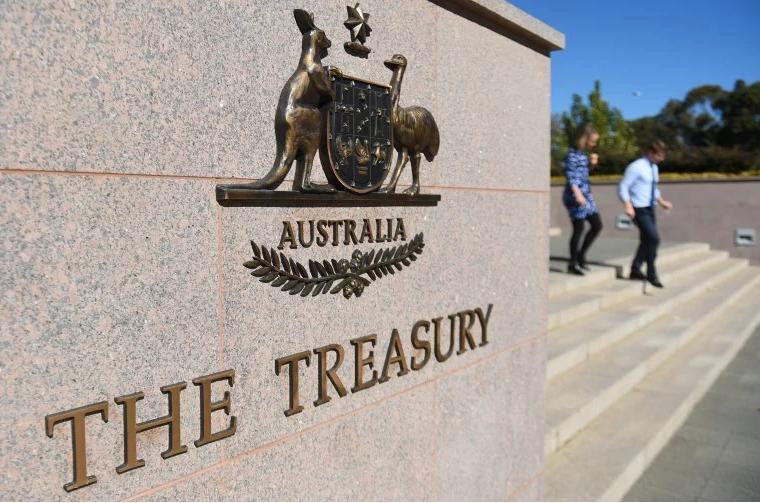The competition watchdog will lose most of its oversight powers for the Consumer Data Right with the federal government to bring decision-making powers in-house for the scheme under draft legislation quietly released last month.
The Australian Competition and Consumer Commission (ACCC) is currently responsible for developing the rules governing the Consumer Data Right, which is currently being rolled out in the form of open banking, along with analysing future sectors to apply it to.
But under draft legislation released at the start of October as part of a whirlwind two-week consultation process, these powers would be taken away from the ACCC and handed back to government.

The draft legislation would reallocate responsibility for making sectoral assessments and the making of Consumer Data Right rules from the ACCC to Treasury, and potentially in the future to a new national body.
“With the CDR regime having launched and focus now shifting to the expansion of its coverage, new organisational arrangements are to be put in place to ensure the system is scalable, sustainable and developed in a coordinated way with broader digital policy initiatives,” the government said.
It comes after concerns that the regulation of the CDR was too fragmented, with the ACCC, Treasury, Office of the Australian Information Commissioner and the Data Standards Body all sharing responsibilities.
The competition watchdog has said it supports this proposal and is in line with the government’s approach to the CDR.
“The ACCC welcomes the proposal for Treasury to assume the rule-making and future sector assessment function of the Consumer Data right. This recognises Treasury’s policy role, and is consistent with the government’s broader approach,” an ACCC spokesperson told InnovationAus.
“We are working constructively with the Treasury’s consultation process for this potential change. The ACCC has already been working constructively with the Treasury to implement this important policy, and that will not change.”
Under the reforms, the government itself would conduct analyses for new sectors that the CDR could be applied to, with the Treasurer to make the final decision.
The Treasurer would also be able to change existing rules and introduce new ones governing the scheme, instead of the ACCC. In “emergency situations”, the government could also do this without substantial consultation.
Treasury released a draft version of the legislation at the start of October, and ran a two week consultation process. Submissions on the bill have not yet been released publicly.
It comes after the government-led Select Committee on Financial Technology and Regulatory Technology recommended earlier this year that a new national body be established to oversee the CDR and take the reins from the ACCC due to concerns the current setup is “unnecessarily fragmented”.
“The committee heard that great benefits could be achieved by consolidating national data publicly under a single agency. The committee agrees that it is time for a clear, effective and accountable regulatory structure for all aspects of data management and privacy in the digital economy,” the committee said in its interim report.
The draft legislation did not reveal whether the government plans to adopt this recommendation or leave decision-making powers with the department.
An open banking report released this week by Frollo and NextGen.Net found that one of the biggest challenges companies looking to take part in the scheme face is a lack of clarity and an overly bureaucratic process.
“The majority of respondents believe the uncertainty about the rules and customer education are considered to be the most important challenges in making CDR a success. We know that change at this scale doesn’t happen at the flick of a switch, but as it stands there is too much ambiguity,” Frollo chief executive officer Gareth Gumbley said.
“The rules aren’t clear and for many it’s perceived as a mountain too big to climb. There’s a difference between consultation and collaboration,” he said.
“Now is the time for the regulator to invest in a simpler and more flexible framework to speed up adoption, or empower banks and fintechs to innovate and get on with it for the benefit of everyone else who will follow.”
There has been a slow start to the Consumer Data Right scheme in open banking, with only six entities so far accredited as data recipients since it was launched in July.
The ACCC said there are a number of changes in the works to make this process easier and quicker.
“The ACCC is pleased with the steady growth of interest and participation in the Consumer Data Right since the launch in July 2020. There are currently six accredited data recipients and we look forward to welcoming more data recipients before the end of 2020,” an ACCC spokesperson said.
“Businesses seeking accreditation go through a rigorous process to ensure they meet appropriate information security, insurance, dispute resolution and fit and proper person requirements. These rules and processes are designed to ensure consumers are and feel safe to transfer their data from data holders to data recipients.
“The ACCC has recently announced a number of measures intended to increase flexibility and encourage greater participation in the Consumer Data Right by prospective data recipients.”
Do you know more? Contact James Riley via Email.

